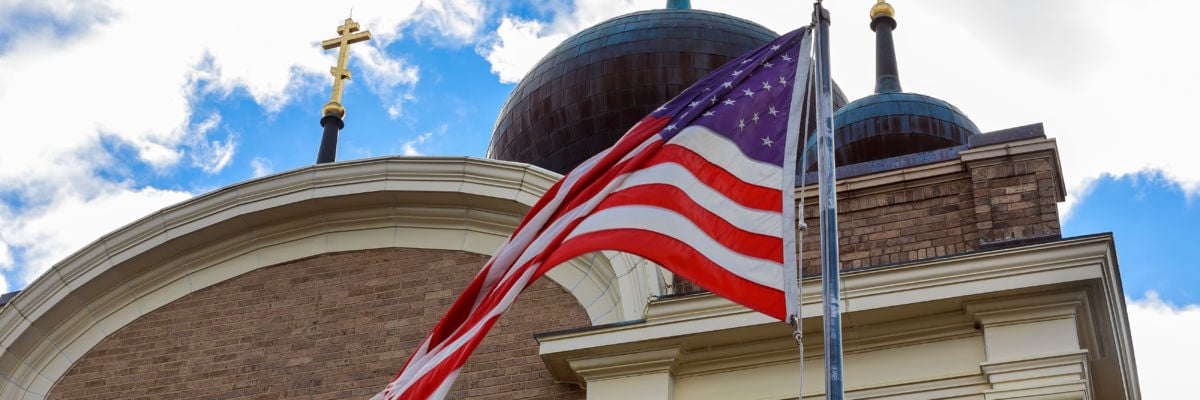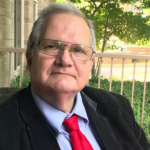
When John F. Kennedy ran for President in 1960, anti-Catholic bigots accused him of “divided loyalties.” Protestant fundamentalists conjured up visions of John XXIII setting up his summer residence in Washington (which would have proven, if it had proven anything, papal non-infallibility in matters of real estate). It was only when JFK told the Greater Houston Ministerial Association that he would not let his faith influence his presidential decisions that historians claim he overcame “anti-Romish” prejudice.
As a Catholic theologian, I’ve long maintained that JFK’s election on those terms was a setback for Catholics. It paved the way for the political image that a “good Catholic politician” is a bad Catholic in general, as we’ve seen with the anti-Catholic policies of America’s second Catholic president. It also cleared the path for the kind of Mario Cuomo political schizophrenia common especially among, but not exclusive to, Democrats: “I am ‘personally opposed’ to X, but I’ll impersonally advance it.”
December 29 was the feast of St. Thomas Becket, who certainly has something to say to moderns about these questions. Becket was the king’s favorite. He excelled as an administrator and executor long before his ecclesiastical career; indeed, it was his achievements in the former roles that inspired Henry II to push him to be archbishop, convinced he’d have a pliant primate in Canterbury. Becket demurred, probably because he knew Henry’s designs and because he had integrity such that if he was to be the highest ecclesiastic in the land, it was his duty to protect the Church’s rights and interests. Push would come to shove over questions like court jurisdiction over criminal clerics, whether ecclesiastical punishment followed by civil punishment for the same offense constituted double jeopardy, and whether the prerogatives of the primate could be arrogated with impunity by other bishops for the king’s convenience. These issues led to Becket’s self-imposed exile and his eventual murder by Henry’s knights.
Although Protestantism likes to claim a “democratic” nature, the truth is anything but. What Becket espoused—and medieval practice protected—was bifurcated loyalties: one was, as St. Thomas More would later put it, “the king’s good servant, but God’s first.” By recognizing that some things did not belong to Caesar, one thereby carved out space for limited government: the state could not demand total loyalty. There were things even kings could not require. The state was not a Leviathan that consumed all the air in the room.
Paradoxically, what Henry II tried for and Henry VIII succeeded in doing was to grow the State and shrink the Church. Their state churches featuring union of altar and throne (as was also common in the Orthodox world, with the same baneful results) destroyed freedom of conscience and the ability to appeal to some order beyond the king. If the same person was supreme head of state and supreme head of the Church, there was no room for your conscience (unless it was identical to the king’s conscience). This unitary loyalty afforded no space for the citizen to challenge the Minotaur state. (The same situation happened in the German lands, where the principle cujus regio, ejus religio forced subjects to conform to their local prince’s faith.)
Whereas kings and princes may have pretended to be “protectors,” even “defenders” of the faith, the truth is that they were usually politicians for whom ecclesiastical roles provided useful supplementary cudgels to enforce obedience. The “faith” rarely was kept in its pristine purity. Rather, it was bent to the momentary political interests of the local lord.
Only by “dividing” loyalties can one allow a theoretical and foundational space for an independent power that checks political absolutism and the dangers accompanying it. That is what Thomas Becket defended—and why he was killed for it.
It’s interesting to consider what likely became of Kennedy’s Houston ministers. I’d guess that, within two decades, they were split. Maybe half, belonging to what Richard John Neuhaus called “mainline/oldline Protestantism” (Baptists, Episcopalians, Lutherans, Methodists, Presbyterians) probably found themselves comfortably accommodating the zeitgeist. In the best spirit of JFK, they did not let their faith interfere with their politics: arguably, they adapted their faith to their politics. The other half, likely evangelicals/fundamentalists and old-school Baptists, were by 1980 thoroughly disillusioned with America’s departure from the broad lines of what might be called “mere Christianity” (especially under a president from whom they would have expected more) and were laying the foundations of the “Moral Majority” movement.
Had the Houston Ministers recognized that loyalty to faith is separate from and necessary to a tamed and limited state, history might have been different. For all its tensions on both sides, the Middle Ages managed to keep a balance by split loyalties. It was only in the modern age, largely under Protestant regimes in Germany, Holland, parts of Switzerland, and the British Isles, that very powerful civil leaders governing very lapdog churches again became prominent.
The problem remains relevant today. Kennedy’s Houston ministers envisioned a “God-fearing America” that still coasted along on the gases of civil religion. Within a decade, those gases started thinning. The confrontation today becomes not whether one is “too American” versus “too Catholic,” but rather whether Caesar thinks he even has any other partner to reckon with. As we saw during the pandemic, religion per se shrank to just another “interest” to be “balanced” by the state against other state “interests.” The same calculus is played out wherever religious faith conflicts with secular “faith”—e.g., in forcing nuns to pay for abortifacients, foster parents to pledge allegiance to gender ideology, or parents to send their children to the public school.
A polity that recognizes “divided loyalties” recognizes that man owes obligations to God that Caesar cannot define or control. In his own way, St. Thomas Becket sought to protect those same values.
Despite some of its historical flaws, why not watch the 1964 movie Becket this week? It has a lot to say to our times.



